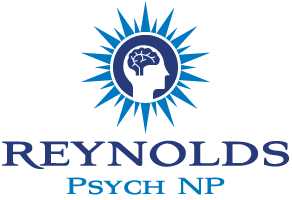A conclusive approach is needed to treat mental health conditions. Understanding what is medication management in mental health is essential for delivering effective care. Numerous patients’ symptoms depend on medications. However, proper prescription management remains essential for safety and effectiveness. Professional supervision through medication management helps patients take all their prescribed medications.
Understanding What is Medication Management in Mental Health
What is medication management in mental health? Psychiatric medication management involves a structured approach to administering and advising psychiatric medicines that optimize patients’ mental healthcare treatment. The process includes routine evaluations conducted by healthcare providers who are psychiatrists, nurse practitioners or qualified specialists to both judge treatment outcomes and reduce potential adverse effects.

Components of What is Medication Management in Mental Health
- Comprehensive Evaluation: A thorough assessment of a patient’s medical history, symptoms, and past medication responses.
- Medication Choice: The choice of pharmacological treatment is determined by the diagnosis and individual medical history of each patient.
- Dosage Modification: The physician modifies the dosages of medicines so that patients can achieve their best outcomes with the least side effects.
- Continuous Monitoring: The patient’s clinical progress needs frequent check-ups for required adjustments.
- Patient Education: The healthcare provider aims to provide patients with clear information about medication usage schedules and awareness of side effects to improve their understanding of what is medication management in mental health.
- Adverse Reaction Management: Healthcare providers track side effects, which leads them to modify existing prescriptions.
- Integration With Therapy: The therapeutic management of medication usually pairs up with cognitive or behavioral therapy methods to produce complete treatment effectiveness.
- Family and Caregiver Involvement: Healthcare providers should teach family members about medication adherence while involving them in support.
- Long-Term Treatment Planning: Healthcare providers must change medication plans over time to match the changes in patient requirements.
- Emergency Intervention: Healthcare providers must handle immediate medical problems that emerge from serious medication effects and drug-related emergencies.
Importance of What is Medication Management in Mental Health
Mental health treatment depends on effective medication oversight. The following list explains why is medication management important:
- Prevents Adverse Effects: Treatment medications for psychiatric disorders create severe negative effects when healthcare providers do not supervise their use.
- Enhances Treatment Efficacy: A formal system to manage medications enables medication effectiveness to control symptoms effectively.
- Reduces the Risk of Non-Compliance: Regular patient follow-ups improve treatment adherence in psychiatric patients.
- Improves Quality of Life: Through proper medication administration patients can achieve life stability and perform daily tasks.
- Promotes Long-Term Stability: Prolonged management of medication leads to decreased hospital visits and symptom relapses.
- Encourages Personalized Treatment: Changes to treatment plans according to individual responses lead to the best possible mental health results.
- Supports Crisis Prevention: Effective management systems protect patients from suffering severe psychiatric issues that would need hospitalization.
What is Psychiatric Management of Medications?
What is Psychiatric Medication Management? Medical supervision of psychiatric drugs used to treat mental health conditions constitutes psychiatric management of medications. Healthcare providers, together with psychiatrists, help patients find optimal medication treatments for their specific psychiatric conditions. This process enables psychiatric medications to be used safely, which helps patients achieve mental health recovery.
- Role of Professionals in Psychiatric Medication Management
- Psychiatrists: They perform medical diagnosis followed by medication prescription.
- Pharmacists: These healthcare providers will help patients understand their medications while looking for possible prescription interactions.
- Primary Care Physicians: Mental health professionals work together with medical staff to monitor patients’ complete health condition.
- Therapists and Counselors: Behavioral therapy should be used to help patients follow their medication plans.
- Nurses and Case Managers: The team should track patient progress while reminding patients to take their medications.
- Peer Support Specialists: People with lived experience should provide their knowledge and emotional backing when patients follow their medication prescriptions to improve their understanding of what is medication management in mental health.
- Family Physicians: Family physicians collaborate to handle medication treatments while treating various medical conditions.
Challenges in What is Medication Management in Mental Health
While it is very useful to understand what is medication management in mental health, some obstacles include:
- Side Effects Management: Patients ideally should adjust their medication because of unwanted side effects.
- Medication Adherence: Patients tend to forget their medication prescriptions, or they choose to discontinue taking them.
- Finding the Right Medication: Each patient may need a trial and error process to choose the most appropriate medication.
- Stigma Around Medication: The feeling of embarrassment about psychiatric medications leads some patients to stop following their medication prescriptions.
- Access to Care: The lack of available mental health professionals tends to create challenges for sustaining proper medication administration.
- Polypharmacy Risks: Patients who need multiple medications need additional medical attention because their drug combinations could lead to dangerous side effects.
- Cultural and Personal Beliefs: Beliefs that are incorrect about psychiatric medication reduce people’s desire to follow their treatment recommendations.
- Insurance and Cost Barriers: A few patients face difficulties obtaining medication at affordable prices.
What is Medication Management in Mental Health: Best Practices
- Regular Appointments: Patients need to maintain their healthcare provider appointments to monitor their treatment outcomes.
- Medication Tracking: A pill organizer or medication tracking app should be used to prevent dose omissions.
- Open Communication: Report all concerns as well as side effects to healthcare providers when needed.
- Holistic Approach: Patients achieve superior outcomes when they integrate medical drug administration with therapy-based practices and personal lifestyle improvements.
- Education and Awareness: The knowledge of what is medication management effects enables patients to maintain active involvement in their medical treatment.
- Support Systems: Family involvement with peer participation helps patients stick to their medication routine while providing emotional backing.
- Monitoring Mental and Physical Health: Patients must receive medication treatments that do not produce negative effects on their general health condition.
- Self-Advocacy: Treatment patients should be able to share their worries and actively take part in their treatment decisions.
- Building Trust with Providers: Strong bonds between patients and healthcare providers improve treatment compliance.
- Avoiding Abrupt Discontinuation: A health professional should supervise patients as they lower their medication doses to avoid withdrawal symptoms.
Related Articles:
- Right Psychiatric for Individual Counseling
- Psychotherapy for Introverts
- Benefits of Individual Psychotherapy
Final Thoughts
Patients must understand what is medication management in mental health. This method guarantees medications are taken safely, effectively, and in combination with other treatments. Get medical advice from a healthcare provider for appropriate management of medications and care for yourself or your loved one. Proper medication oversight strongly depends on long-term stability and well-being in mental health recovery.
You should immediately look for expert assistance if you face mental health problems or if someone you love needs mental health support. Improvement of mental well-being is only possible through medication management in conjunction with therapy and lifestyle changes. Contact healthcare professionals like Reynolds Psych NP immediately to begin your journey toward better mental health and understand what is medication management in mental health.
Begin the journey towards better mental health by getting in touch with experts via phone at (262) 999-7350 or send an email to [email protected] to get going.
FAQs
What is medication management in mental health?
The main objective of psychiatric management of medications involves improving treatment results through the reduction of adverse effects and protecting patient security.
How often should management of medication reviews take place?
Patients need medication reviews, which should begin with regular checks during the first few weeks and continue at appropriate intervals according to individual needs.
Can the management of medications help with all mental health conditions?
This healthcare practice proves helpful for various mental health disorders such as depression, anxiety disorders, bipolar illness, and schizophrenia problems.
Who is responsible for the management of medications?
Healthcare providers, including psychiatrists, nurses, pharmacists, and primary care physicians, participate in the management of medications.
Why is medication adherence important in mental health treatment?
The success of the treatment of mental health, in addition to minimized relapse, relies on taking medications as ordered. Skipping medications or stopping drugs without consulting with the doctor will lead to the reappearance of the symptoms and other medical complications.







